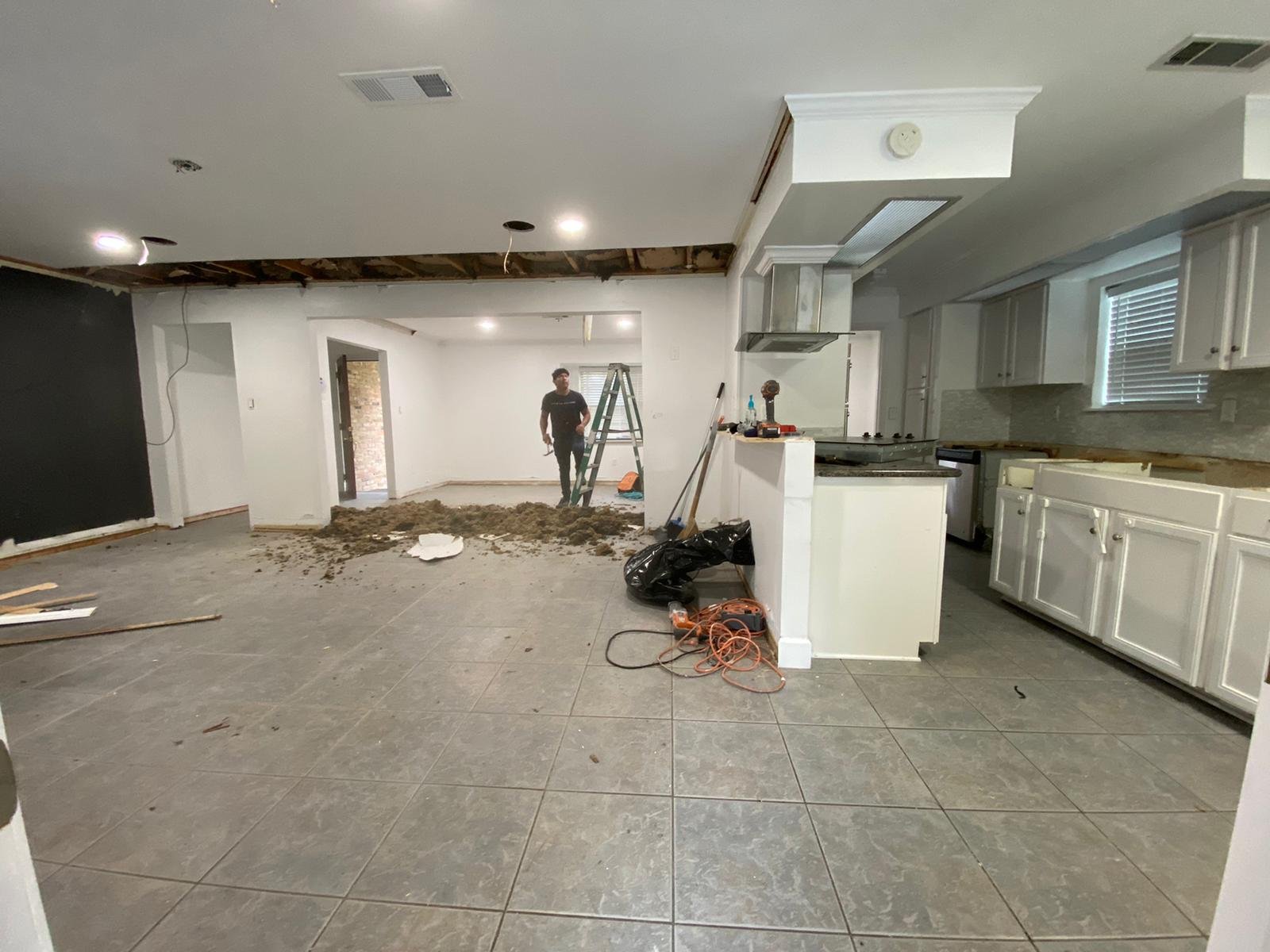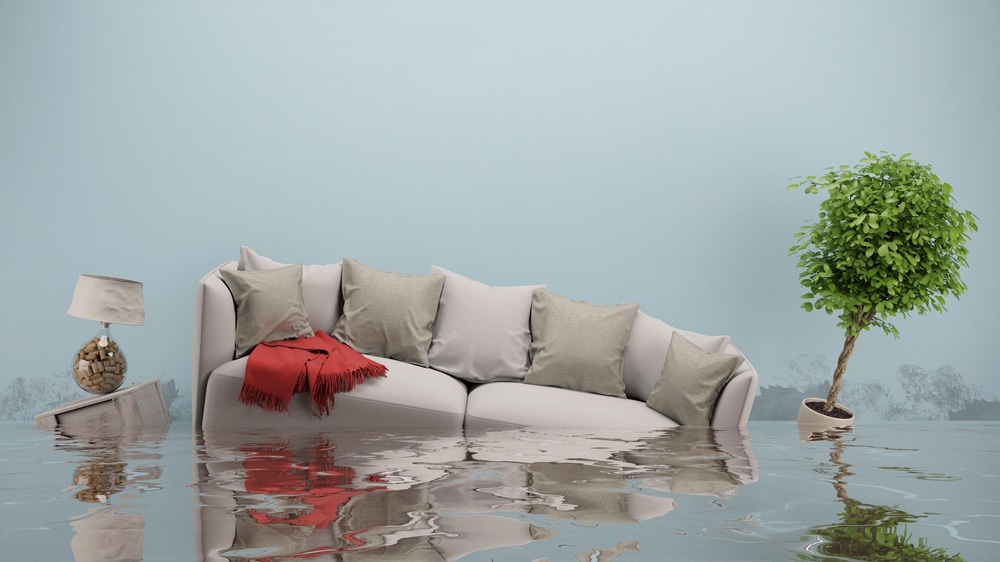Water Damage: Reasons, Signs and also Solutions
Water Damage: Reasons, Signs and also Solutions
Blog Article
Here in the next paragraph you will find more sound resources about Causes of Water Damage in Kitchen.

The kitchen area is the space where a lot of water activity goes on. You can rarely do anything without utilizing water in the kitchen area, from cooking, cleaning, and doing the recipes.
Thus, examining your kitchen every now and then is a necessity. Since it has a higher opportunity of getting water damage due to the appliances you make use of there, this is.
When damaged, these home appliances that control water can make your cooking area untidy and influence the framework of your building in the future.
So, let's look into some root causes of the water damage in the kitchen area and also what you must look out for.
Some Root Causes Of Water Damages in the Cooking area
These are a few causes of water damage in the cooking area.
Faulty Drain Piping
Drain Pipelines are required parts of our houses, particularly in our washrooms as well as kitchen areas. They obtain damaged by getting obstructed, cracked, as well as burst. Or worse, they can be mistakenly or loosely linked; whichever the instance may be, it can be a serious problem.
Defective drainpipe pipelines can trigger water damage and also, as a result, trigger mold and mildew growth as well as injure the look of your wall surface. It can also make the affected location look unpleasant.
Therefore, it is recommended constantly to check to make certain that all the pipes remain in good condition and obtain a sound pipes system to keep and take care of any kind of issues.
Faulty Kitchen Area Sink
The cooking area sink is an essential and also many utilized part of the cooking area. For this reason it is prone to water damage; problems such as obstructed pipelines, leaky pipes, as well as damaged taps.
These damages can be annoying, particularly when one is hectic in the cooking area. It doesn't just take place without offering a sign or a clue. So right here are some indications to understand when your sink is not fine
These are the significant damages that can happen to your cooking area sink. One means to stop this damage is by making certain that food bits do not get right into the pipelines. You are additionally inspecting the pipelines and also faucets and also making certain that it is effectively dealt with as well as in good condition.
Leaking Dish washer
Dishwashing machines make life in the kitchen less complicated. However, it is an optional cooking area home appliance and, when readily available, can be a source of water damage. Furthermore, like other equipments, it will develop mistakes over time, despite maintenance.
Among the mistakes is leaking via the door or below the dish washer. These faults create because of age, cracks, incorrect usage, loosened links to pipelines, and so on.
Faults because of age come from constant usage. Because of this, the door leaks because of closing as well as opening up.
Faults from the wrong use may trigger water damage by presenting cracks to it. It is suggested to follow the hands-on overview of the dishwasher to avoid this certain damage.
The leaks under the dishwashing machine can originate from splits in the gasket, hose pipe, as well as loosened or wrong link to water pipes or drains.
This type of leakage often goes unnoticed as well as can be there for a long period of time. Due to the time framework, it can damage the floor and trigger mold and mildew development.
More so, the longer the water stays, you will discover the warping of the flooring where the dish washer is. When inspecting if your dishwashing machine leakages, this is an excellent indicator to look out for. Detecting and also repairing this on time prevents serious water damage to your flooring.
Bottom Line
Looking out for damages in your kitchen can be tasking but necessary. It makes your work there easier and much safer.
Nevertheless, the reasons provided above are just a few aspects to think about, particularly if your kitchen area has a lot of appliances.
So get a professional pipes solution to find around and look for any kind of damages as well as get them fixed.
It makes your kitchen location wet and unpleasant, specifically when leaking from the pipes. And if it is trickling from the tap, it leads to water wastage.
It is an optional cooking area home appliance as well as, when available, can be a resource of water damage. A lot more so, the longer the water stays, you will certainly observe the warping of the flooring where the dishwashing machine is. Finding and also repairing this on time avoids significant water damage to your floor covering.
WAYS TO PROTECT YOUR KITCHEN FROM WATER DAMAGE
The kitchen is one of the most significant rooms in your house, as it is a multipurpose room wherein you can do your cooking and cleaning. Nowadays, homeowners tend to ignore the problems under their sink or appliances because of their busy schedules. However, most household floods occur due to plumbing and appliance failure. One of the most common scenarios that cause water damage to your kitchen is when the dishwasher malfunctions and floods gallons of water.
Water damage in your kitchen can cause several problems, including cosmetic damage, mold growth, and even an unpleasant smell. Often, if you fail to neglect the problem, there are always consequences. This article will help you protect your kitchen from water damage.
Common Causes of Water damage in your kitchen
Pipe problems are the most common source of water leaks under your sink. If homeowners ignore this issue, it will burst and flood the kitchen. Dishwasher leaks can be a source of water damage in your kitchen. An old, broken, and defective dishwasher can cause leaks, damage to your floor, and even mold growth. Refrigerator leaks can cause water damage in your kitchen, as sometimes melted ice from defrosting can cause leaks. Furthermore, if your refrigerator has internal problems, it is very likely to cause water damage. Back-splash and sink caulking can cause discoloration and water damage to your countertop tiles. Ways to Protect Your Kitchen From Water Damage
Regular maintenance
The most important thing you can do to protect your kitchen from water damage is to inspect the sinks, drains, and pipes, as well as the kitchen appliances, regularly. As with the sink, check for missing or deteriorated caulk. Remove the old caulk and clean the area thoroughly and re-seal it with fresh silicone. Furthermore, sweep the drain regularly, empty the filter and dispose of the debris in the garbage, and inspect the supply lines and valve for cracks.
Check your appliances
Check the user’s manual for instruction and proper use of every water-related appliance installed in your kitchen. For the dishwasher, check this procedure to prevent the dishwasher from flooding your kitchen. Check the appliances that need water, such as the coffee maker, ice maker, and water cooler, as they can become the cause of water damage in your kitchen. You may call a professional to check and repair damaged appliances and professional restoration for water damage clean-up.
Garbage clean-up
Fats, oil, and grease are common in the kitchen. Pouring them down the drain can cause clogs and sewage backup, which may result in significant kitchen water damage. If your kitchen sink is clogged, use a solution of hot water, baking soda, and vinegar to unclog the fats and oils in the pipes. Also, make sure to throw out the debris in the trash and clean the sink properly using paper towels for greases and oil and soap or bleach solution for the sink itself.
Shut off your water line
Make sure to shut off your main water line, especially if you're away and having some flood issue. As mentioned, dishwasher leaks are one of the most common culprits of water damage in the kitchen. So, make sure to only use the dishwasher if someone is at home and available to attend in case a problem arises.
Furthermore, it is also important that every member of your household knows where the shut-off valves are located. So in case of an emergency, they can mitigate the damage by turning off the water source.
Install leak detectors
One of the best ways to catch water damage before it could even cause serious damage to your home or business is by installing a water or leak detector. A leak detector monitors the flow of water through a pipeline, can detect moisture in the air for molds, and tracks the water temperature. Also, it can shut off your water line in case of an emergency. Install leak detectors under the kitchen sink, near the dishwasher and refrigerator.
https://superiorrestore.com/7-ways-to-protect-your-kitchen-from-water-damage/

Hopefully you liked our part about How To Prevent Water Damage To Your Kitchen. Thanks so much for finding the time to read through our blog. Do you know about somebody who is involved in the subject? Take a moment to promote it. Thanks for your time. Kindly pay a visit to our website back soon.
Schedule An Appointment Report this page